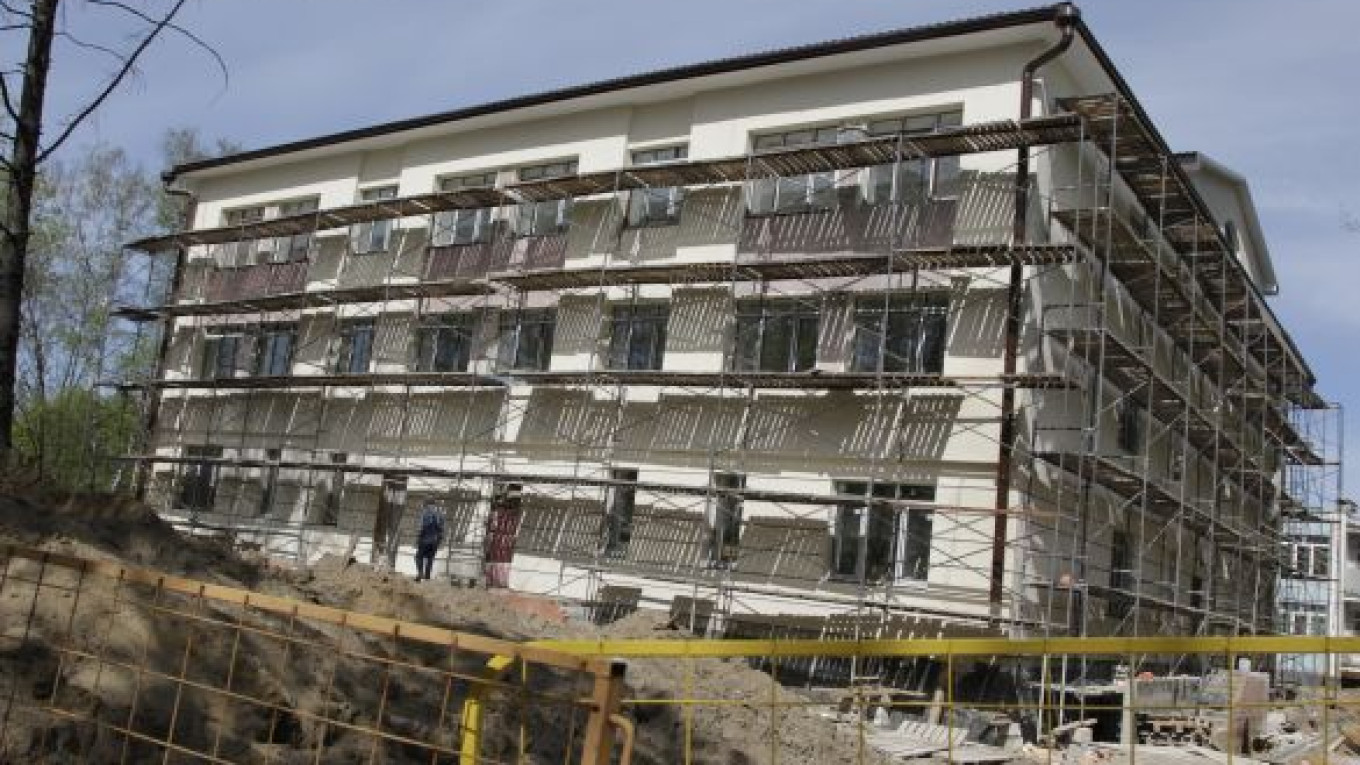Moscow's Presnensky Court has upheld property developer Terra Auri's right to build a new kindergarten on the territory of an 18th century park, where an office of the Federal Drug Control Service and an existing but disused kindergarten are also located.
The court dismissed a case brought by preservationists to stop the Terra Auri project in the Lefortovo district's Stroganov Estate park. Located on the Yauza River embankment, the park used to be referred to as "The Versailles on the Yauza."
Construction on the territory of the park is prohibited by environmental protection and cultural heritage laws, said Alexandra Andreyeva, a deputy of Lefortovo's municipal assembly.
She said the court's decision was "predictable."
"There was strong will from the authorities to build the kindergarten anyway."
It's not a problem stemming from the pursuit of profit but one of political power, Andreyeva said.
"The authorities want to show that the residents mean nothing, and that they should not impede public projects."
Due to a lack of grassroots organization in local communities, such sites can only be saved if an order from a high official is received, she said.? Moreover, succeeding in court? against a government department is difficult because of the executive branch's interference in judicial proceedings, Andreyeva added.
Terra Auri has also chopped down 350 trees in the area in violation of a ban stipulated by local laws, she said.
A spokesman for Moscow's department for natural resources and environmental protection backed up Terra Auri and said the project "will not harm the surrounding nature."
The city spokesman said that the project complied with city laws. On April 11th, City Hall passed Law No.12, amending the City Development Code. It allows city-funded daycare centers to be built in protected natural areas, according to the Russian Legal Information Agency. However, Terra Auri began construction in 2010.
One of the conditions of Terra Auri's construction permit stated that at least 60 percent of the project's territory must be planted with trees or grass. Yet only 30 percent of the territory meets this condition, Andreyeva said.
Commenting on the alleged violation of the conditions, Judge Irina Zubova said that she was bad at mathematics, which is why she decided to go to law school, according to a tape of court proceedings.
Lefortovo activists will file an appeal with the Moscow City Court.
"Even if they build the kindergarten," Andreyeva said, "I will destroy it anyway."
Related articles:
A Message from The Moscow Times:
Dear readers,
We are facing unprecedented challenges. Russia's Prosecutor General's Office has designated The Moscow Times as an "undesirable" organization, criminalizing our work and putting our staff at risk of prosecution. This follows our earlier unjust labeling as a "foreign agent."
These actions are direct attempts to silence independent journalism in Russia. The authorities claim our work "discredits the decisions of the Russian leadership." We see things differently: we strive to provide accurate, unbiased reporting on Russia.
We, the journalists of The Moscow Times, refuse to be silenced. But to continue our work, we need your help.
Your support, no matter how small, makes a world of difference. If you can, please support us monthly starting from just $2. It's quick to set up, and every contribution makes a significant impact.
By supporting The Moscow Times, you're defending open, independent journalism in the face of repression. Thank you for standing with us.
Remind me later.


